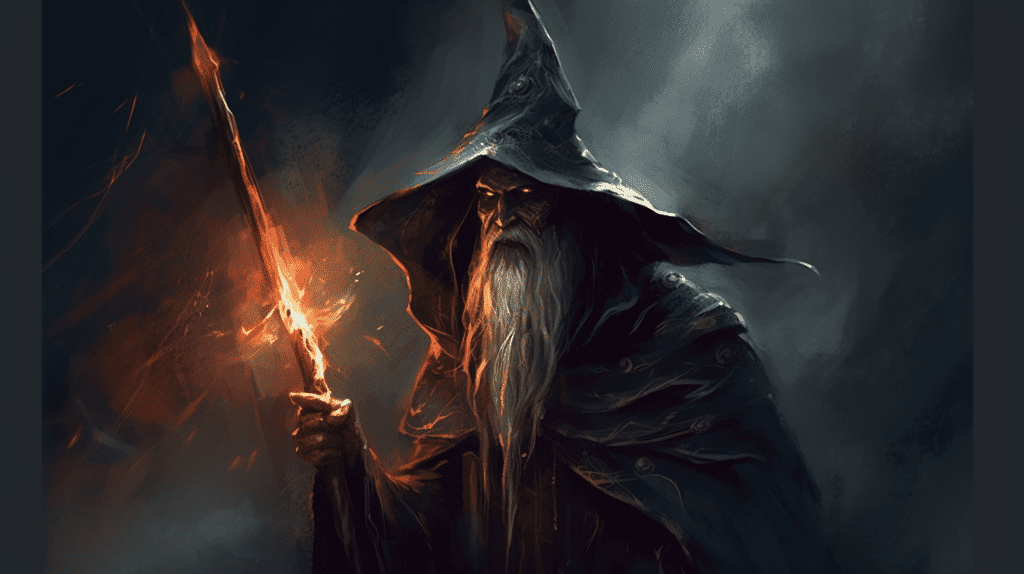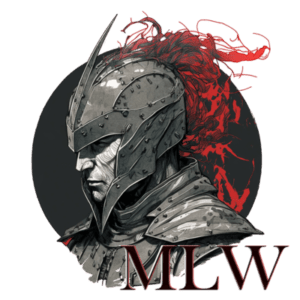In Dungeons and Dragons, the role of the Dungeon Master is to guide the players through the experience by overseeing and narrating the story. The Dungeon Master also controls and roleplays non-player characters and other encounters that the party interacts with during the campaign. All-in-all, the game wouldn’t be the same without a Dungeon Master.
Because the Dungeon Master is so invested in the story, and has to focus on telling the story, rather than viewing it from the outside, one might think that the Dungeon Master shouldn’t have a player character to control as well. But the truth is…
It’s possible to be a Dungeon Master and control a player character simultaneously but it’s important to balance the DM’s character to make sure it doesn’t overshadow the party, or make the game about the DM’s character. In addition, the Dungeon Master must be careful not to manipulate the game too much to benefit his or her character. Instead, the DM’s character should facilitate the game, not own it.
It’s quite difficult to have a DM-controlled player character unless it’s done properly. I can see why some people would want to, though. Especially when you’re playing with a smaller group, where an additional character can add more layers to the adventure.
It’s important that you, as a Dungeon Master, find a balanced approach before you decide to join the party as your own character to make sure the player’s experience isn’t dampened or affected by it too much, as this will make the game less enjoyable for all of you.
So, what should you consider before being both a Dungeon Master and a participant at the same time?
How To Play a Character and Be a DM at the Same Time

We’ll take you through some of the steps that should be taken into account by anyone who’s thinking about multi-playing Dungeons and Dragons. Generally, having your Dungeon Master play his or her own character isn’t something that enhances the experience, because they’re so valuable in their position as Dungeon Masters.
However, in certain scenarios having your Dungeon Master play a character can take the adventure to the next level.
Balance Your Role as Dungeon Master and Player Character
While you’ll partake in the story as an observer, or as someone who experiences it through the eyes of your character, you’ll also be the one telling the story at the same time. It’s important to not let one of the roles overshadow the other.
Finding the perfect balance here can be difficult. From what I’ve found, the best way to approach this is to have your character be more passive than the other characters, which leaves space for you to master the game. The same would be much harder if your character was a very active and lively member of the party.
There’s a sweet spot and you’ll find it over time. Just knowing this is most likely going to help you achieve the status quo.
No Conflicts of Interest
This one is obvious. You’re in control of the encounters, the puzzles, the mysteries, and the game world in general. Don’t get involved when there’s a situation that you can manipulate single-handedly through the knowledge you’ve garnered as a Dungeon Master.
Also, as a Dungeon Master, you shouldn’t punish players who your character might have beef with to manipulate the story to your advantage.
Do Not Steal the Show
As a Dungeon Master, you’ll be gaining a lot of attention, not through acts of heroism, cool one-liners, or knee-slapping jokes, but by being the story and everything the party encounters through their journey. So, when you’re playing your character, let the party have their time in the spotlight. Don’t try to steal it from them.
Keep Your Character’s Knowledge and Your Knowledge Apart
This can be difficult. You know the story, you’ve prepared it – but your character does not. You’ll have to learn how to switch between the two and not use that knowledge to your advantage. You might know about a secret passage, a trap, or a treasure but your character must be oblivious to the fact.
Don’t Let Your Character Snowball
It’s better to let your character struggle a little bit to overcome certain tasks than to have the character plow through each encounter like nothing. This could quickly turn into a snowball scenario where the character turns into an unstoppable force, which might sound cool but it tends to ruin the campaign for everyone.
Can the Dungeon Master Do Anything?

The Dungeon Master certainly has a lot of control over the game and can decide to switch things up during the campaign, introducing new characters, encounters, and much more. The role is about being prepared and proactive, but it’s also about being reactive.
This means that they should have a couple of aces up their sleeve or options in the back of their head that can be introduced throughout the campaign.
The only limitations that a Dungeon Master might be bound to are the rules and mechanics that have been picked for the campaign beforehand. The one thing that a Dungeon Master shouldn’t and can’t do is to control the actions of player characters and what they experience.
Can You Play DnD Without a Dungeon Master?
From a purely technical it’s possible to play Dungeons and Dragons without a DM, but it would require you to make modifications to the game and it will certainly not be the same. Seeing as the DM is the core of the game, you would be giving up a vital part of the experience.
So, if you’re dead set on playing the game without a Dungeon Master, then there are ways of doing so. It should be noted that the game won’t be the same, but it’s still possible to do it.
One thing that parties without Dungeon Masters do is that players take turns reading descriptions and narrating the NPCs and encounters. Which basically turns them into short-term DMs whenever it’s their turn to narrate the actions of the NPCs. It’s a more collaborative way of playing the game.
Playing a pre-written campaign that comes with a complete story and predetermined encounters also is pretty much required when taking turns overseeing the game.
Your best bet is to turn to another system. A system that doesn’t require a Game Master to be played. Perfect examples of games that are designed to be played without Game/Dungeon Masters include Fiasco or Microscope.
The stories in these games are created differently. The group creates the story collectively, rather than having a master serving or presenting the game to the group. Players then take turns narrating parts of the game.
There are also digital solutions in the form of random generators and such that can be used to fill the gaps.
With that said, I think the game should be enjoyed with a Dungeon Master to get the most out of the experience. However, I wouldn’t want to prohibit anyone from playing the game their own way.
Can There Be Two Dungeon Masters In Dungeons and Dragons?
Yes, a DnD adventure can have two DMs to oversee the game but I can’t imagine it being better than having one designated DM throughout the entire campaign. To do it successfully, the Dungeon Masters would have to coordinate their plans and communication with one another to ensure they’re on the same page.
One way of executing an adventure with two DMs would be to have them take turns guiding the game or let them be responsible for different parts of the campaign.
You could, for instance, divide the different aspects of the game into modules that the DMs can choose to be responsible for. This would leave one DM in charge of storytelling and roleplaying while the other one creates and monitors combat encounters. This way, both DMs have their own areas of interest.
For this to work you would need two people who are willing to collaborate and compromise, regardless of how you choose to execute it.

